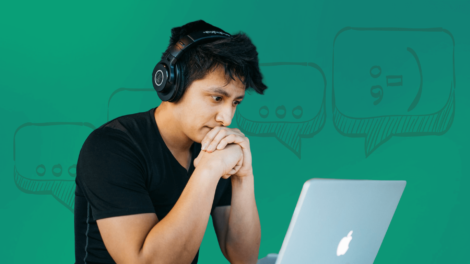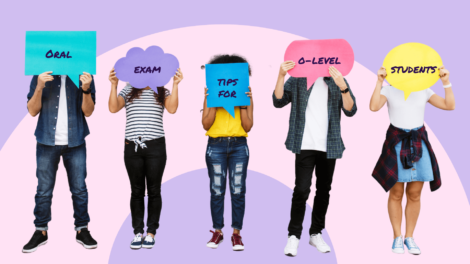“How are you going to do your exams?”, “Do you even learn anything sitting on the computer?” “How come the internet can suddenly replace school?” and the like – the repertoire of questions this generation’s students have undoubtedly been bombarded with in the last year and a half.
Online learning, online exams, online consultations – even online friendships – have evidently become the norm these days, and the students of this generation have been through a rollercoaster of ups and downs in their academic pursuits. From kindergarten all the way to tertiary education, the pandemonium onset by the pandemic has no doubt disrupted the education of our students in countless different ways. Though we as a society are quick to denounce the impact of this upheaval on our daily lives, studies and achievements, the mental health of those most affected by these drastic changes are often blindsided.
Whether they miss their friends, can’t seem to learn anything over zoom, feel disconnected from their peers or are quite simply confused, these students shared their unfiltered perspectives on the impact of distance learning on their mental health.
Students are one of the groups we’ve heard about less throughout the pandemic. While most places are quick to send people back into the workforce, students have often had to bear the burden of continued remote study to account for this. This often comes with mixed-feeling student reviews regarding mental health – although e-learning allows for guaranteed safety by staying home, students may often feel like they are losing out on once-in-a-lifetime experiences. We’re all quick to cite the saying; “school will be the best years of your life” – but does this message still apply over zoom?
“I’m glad I was still able to complete one year of education despite the pandemic” states Aanya, a first year university student in Australia, “but I felt I could have achieved more if it was a face-to-face scenario. I finished the whole of my first year in my bedroom. Whenever I say this to older people they would pity me and say “my first year of university was the best experience of my life.” Aanya elaborates how this may often translate to experiencing a “Fear Of Missing Out” – or “FOMO” – and pushes students to make upward comparisons between themselves and those from previous years or in countries with more lenient COVID-19 restrictions. Sunflower, another university student in Australia, adds on to this stating that the current situation for university students feels like a “dead end”; “I do think that I missed out on a lot, for example being independent, various classes that are only done in person and just meeting people. It really sucks because there’s literally nothing we can do about it”. These complaints and concerns are echoed by a multitude of students across the world, calling for the issue to be addressed by their respective institutions.
Besides the monotony onset by e-learning, our students raise concerns on the toll it takes on their social health; “It can be pretty difficult to meet new people online”, Sunflower notes quite simply. Thrown into completely new groups of people from class to class, lots of students are no doubt feeling anxious and lonely without being able to meet and interact with their cohorts. “I don’t think I would choose to do online school forever because I am aware of how it has made me a bit more anxious and less social”, she asserts. Victoria, another secondary school student in Singapore, further emphasised the lack of social interaction and its negative impact on her educational experience and mental health; “I think not being around other people for so long makes you feel very alone. Everyone’s cameras are usually off, mics all muted, and it feels like you’re the only person there with the teacher”. Aanya sums up this dilemma perfectly, asserting that maintaining one’s mental health at school is arduous when it has to be contained within the “small virtual four walls of Zoom”.
Delilah, a 14 year old studying at an international school in Singapore, further adds on that distance-learning is just as difficult as it is dull; “it is a struggle to stay motivated”, she confesses, “[students] burnout with too many tasks, trying to maintain the same level of learning with regular school”. Hannah, a high school student in Singapore, expresses that distance-learning rendered “the work [feeling] never-ending”, citing the confusion she experienced when “the online space that [she] used to be able to relax in was now filled with more stress than before”. These students touch on a quintessential point – though distance-learning became a widely preferred alternative, it took away a means of relaxation for today’s student and turned it into a workspace.
However, our students are quick to clarify that e-learning has not been all bad in terms of maintaining a positive mental state.
Indeed, Victoria explained how she feels she has developed better mental strength due to this; “I definitely feel like I missed out on a lot. It was really hard to deal with for quite a long while, but I guess I’ve just had to accept it. This sounds a little [dramatic], but I feel like I’ve become a stronger person and that this experience is going to shape me for the rest of my life”.
It’s also undeniable that the typical in-person academic experience in itself is quite demanding and tends to take a toll on student health in itself – the flexibility that e-learning allows for is acknowledged by our students and potentially facilitates a more balanced lifestyle and improved mental health; “ I did not have the struggle of waking up early in the morning and rushing to lectures because I could do lessons on my own time. The exams were under 24 hours with opened books which made it way easier. I had more flexibility to do what I would want to do. Honestly, maybe online university allows me to be less stressed than I’d otherwise be”, states Aanya. Hannah emphasises that distance learning has been especially useful for students already suffering from mental health issues. With the constant surge in uncertainty onset by the pandemic, ever-changing restrictions and the health of those close to us, anxiety levels have been soaring amongst most everyone. She asserts that distance-learning can often allow for some space and peace of mind in the midst of this turmoil “I actually think [online education] should be an option; especially if you’re going through something mentally and find it hard to get up and go to school. Mental health is important and sometimes in order to care for it, space from other people can help a lot. I don’t think I would do it forever, but I’d like the option to so I don’t miss schooling if I need a break. I remember back in middle school I used to miss days of school to try to feel a little better mentally, but sometimes the feelings would persist beyond the couple days I would take off; so I feel like online school would be a good option in that regard.”
Having gained an insight into the experiences of these students, take a moment to reflect on how the shift to e-learning has impacted the mental health of your loved ones.
If you feel that you or those around you are experiencing any mental health difficulties, please ensure to seek external help and support. Some starting points (based in Singapore) are listed below:
Helplines
National Care Hotline: 1800-202-6868 (8am – 12am)
General Mental Well-Being
Fei Yue’s Online Counselling Service: eC2.sg
Institute of Mental Health’s Mental Health Helpline: 6389-2222
Samaritans of Singapore: 1-767 (24 hours)
Silver Ribbon Singapore: 6385-3714
Tinkle Friend: 1800-274-4788
Counselling Services
TOUCHline (Counselling): 1800-377-2252
Care Corner Counselling Centre: 1800-353-5800
If you know anyone who may need help, do share this article with them.
For more information regarding mental well-being, check out Learner Net’s Mental Health Series here, and keep a lookout for more upcoming content.








There are no reviews yet.